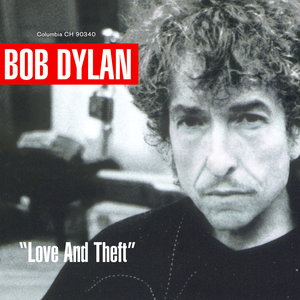Published on Feb 12, 2003
Love And Theft was released the day the Twin Towers fell. I
did my obligatory Sept. 11 story for the university newspaper (most
of the news reporters were still sleeping when the tragedy
occurred, so I was pulled from the arts and entertainment section).
But I still had to review an album.
In a daze, I walked to the record store after I did my story,
already going through the stages, like most people I knew: shock,
numbness, anger, rage, sadness, sorrow and bewilderment. I was
already well aware of the heroism that was displayed that day, but
I was desperate for something more. I knew why people hated the
United States. And at that time, I craved something tangible.
Something to remind me why the United States was still a great
country. And for a music geek, that answer most certainly had to
come from an album.
Of course,
Love and Theft came on the heels of Dylan’s Grammy
award-winning
Time Out Of Mind, making it his strongest one-two punch
since
Blood On The Tracks and
Desire. And
Love And Theft was Dylan at his loosest and friskiest. The
album sounds deceptively effortless, but that typically means that
the artist has worked their ass off to make it sound easy.
The characters that populate
Love And Theft represent America to the bone: seedy,
undesirable gamblers, people with a second chance on life and folks
who can’t spend money fast enough. All these characters do this in
a background of rockabilly, swampy blues and even swing (the swing
that would fit right at home in your hometown’s VFW Hall).
Of course, you can’t accomplish this magic without a decent
backup band. And by touring almost nonstop for the better part of
two years, Dylan has shaped his band to fit in with wherever the
hell he wants to go artistically. On “Cry Awhile,” the music shifts
schizophrenically to the point that it sounds like three different
songs are going on at once. Drummer David Kemper packs a whallop on
songs like “Honest With Me” and the shuffling “Lonesome Day
Blues.”
Dylan purists who poo-pooed
Love And Theft for being too light on substance (OK, the
senile humor of “Po Boy” can be annoying if you’re not in the right
mood) should scan the lyrics of the closing song “Sugar Babe.” “I
got my back to the sun, because the light is too intense,” Dylan
says in a cryptic, almost mummified voice. “Happiness can come
suddenly and leave just as quick.” Simple lyrics, yeah, but they
can go toe-to-toe with any of the darkest parts of
Time Out Of Mind.
The character at the end of “Highlands” (from
Time Out Of Mind) bemoaned “The party’s over, and there’s
less and less to say.” On
Love And Theft, it sounds like that character had a heart
attack, but survived, and with a new lease on life, vows to spend
every dime he has, hit on every girl in sight and to thieve a
cliché: rage against the dying of the light. Is this Dylan?
Who cares?
Love And Theft is Bob Dylan at another turn. It would have
been so easy with
Time Out Of Mind to usher Dylan out of musical relevance,
because it sounded like the perfect album to retire with. But with
Love And Theft, Dylan shows us that his peak may still be a
few albums ahead. And fortunately, he did it just at the moment
when America needed him the most.
